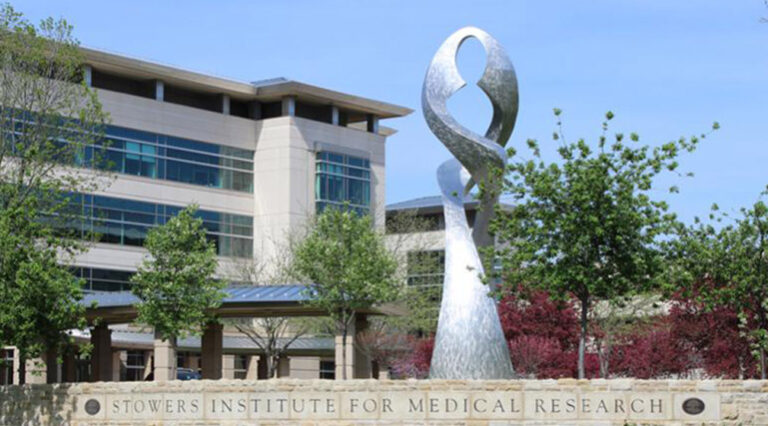News
30 July 2024
Postdoc Profile: A Q&A with Horacio Pallares, a Postdoctoral Researcher in the Bazzini Lab
"My ultimate goal is to identify potential targets for the development of innovative antiviral therapies."
Read Article
News
Horacio Martín Pallarés, Ph.D., in the lab of Ariel Bazzini, Ph.D., a 2010 Pew Fellow, plans to bring his research on viral epidemics to aid his home country of Argentina
KANSAS CITY, MO—August 12, 2025—The Pew Charitable Trusts has announced the 2025 class of the Pew Latin American Fellows Program in the Biomedical Sciences, one of the most coveted and competitive fellowships for early-career scientists. Stowers Postdoctoral Research Associate Horacio Martín Pallarés, Ph.D., is among just 10 Latin American postdoctoral fellows selected to pursue two years of research training in the United States. He will continue to conduct his work in the lab of Stowers Associate Investigator and 2010 Pew Fellow Ariel Bazzini, Ph.D.
Pallarés’ research focuses on how tropical viral diseases—particularly Zika and dengue, which are prevalent in his native Argentina—invade and hijack their host's cellular machinery to replicate and spread.
“It is important to return to Argentina to study the diseases that impact the people in my country,” Pallarés said. “If Argentinians do not research these viruses, no one else will.”
The Pew Latin American Fellows Program supports postdoctoral training in US laboratories and fosters scientific exchange between US and Latin American scientists with the goal of advancing research across borders. Fellows receive additional funding to if they choose to establish an independent laboratory upon returning to Latin America. Nearly 70% of program participants take that path, helping build a robust research community in their home countries.
“When I got the email…I screamed out of joy,” Pallarés said. “This will be key to opening my own lab in Argentina.”
Pallarés joined the Bazzini Lab in 2024. Bazzini calls the fellowship a “game-changer” for Latin American scientists.
“Horacio’s work epitomizes what makes this fellowship so impactful,” said Bazzini. “It supports rigorous, curiosity-driven training while building lasting bridges between labs in the U.S. and Latin America—bridges that accelerate discoveries with real-world health relevance.”
“This new group of fellows embodies the curiosity and talent driving scientific innovation today,” said Eva Nogales, Ph.D., distinguished professor in the Department of Molecular and Cell Biology at the University of California, Berkeley, and chair of the program’s national advisory committee. “I am thrilled to welcome this outstanding group of Latin American researchers into our rich community, and I look forward to watching where their efforts lead.”
Thanks to Bazzini’s initial fellowship in 2010, he, along with a 2009 Pew Fellow, later received the Pew Innovation Fund in 2019. The fund allowed Bazzini to advance his lab’s focus from development in zebrafish to include viruses and the biological mechanisms that fuel their replication.
“Seeing how this award helped Ariel’s career is exciting for me,” Pallarés added. “The study of flaviviruses such as dengue and Zika is an interdisciplinary investigation with important impacts for addressing current epidemics and preparing for future outbreaks.”
News
30 July 2024
"My ultimate goal is to identify potential targets for the development of innovative antiviral therapies."
Read Article
News

14 June 2022
Pallarés, a PhD student, will arrive at the Stowers Institute in July after being named a 2022 PROLAB winner.
Read Article
Press Release
22 July 2024
Stowers scientists uncover fundamental rules for how dengue virus infects its mosquito and human hosts, providing hope for identifying therapeutic approaches
Read Article
